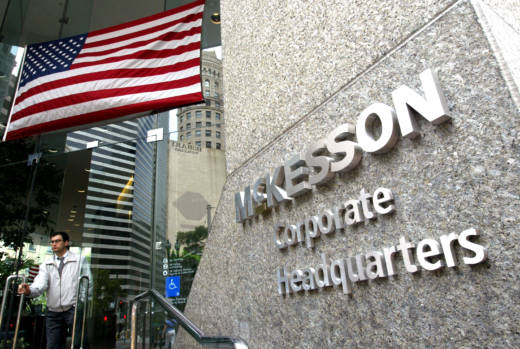The subpoenas are the latest in a series of state and federal efforts to scrutinize and penalize McKesson, which is believed to distribute one-third of all pharmaceuticals used in North America, for its links to the nation’s opioid crisis.
The House Energy and Commerce Committee is investigating shipments McKesson and other companies made to pharmacies in small towns in West Virginia.
Last year, McKesson agreed to a settlement with the U.S. Justice Department and paid a $150 million fine in civil penalties for alleged violations of the Controlled Substances Act.
In 2008, McKesson agreed to a $13 million civil penalty for similar violations.
Federal prosecutors say that, between 2008 and 2013, McKesson supplied pharmacies an increasing amount of oxycodone and hydrocodone pills.
Prosecutors in several states, cities and counties have sued the company as well as other large drug distributors and manufacturers.
Mello says that litigation could lead to a “global settlement.”
“This is going to be a very difficult path for the company to tread, and that really bodes well for the states attorney general,” Mello said.
In early March, lawyers representing West Virginia in its lawsuit over that state’s opioid epidemic revealed that they planned to depose several top McKesson executives in the coming months. Five of the company’s officials are slated to be interviewed starting the week of April 12.
In that lawsuit, the company is accused of offering bonuses to employees for increased opioid sales. McKesson disputes that claim.
Late last month, McKesson filed papers in Oklahoma state court to get a lawsuit filed by the Cherokee Nation moved into federal court.
The tribe says the San Francisco company and several other firms, including Walgreens, Walmart and CVS Health, caused and perpetuated the opioid abuse epidemic in the Cherokee Nation.
Last September, California Attorney General Xavier Becerra announced that California and 40 other states were expanding their investigation into the opioid crisis, which included more scrutiny of McKesson.
His office noted that opioids are the main driver of drug overdose deaths in the country. The drugs were involved in more than 33,000 deaths nationwide in 2015.
That year, approximately 2,000 Californians died due to overdoses related to opioid use.

